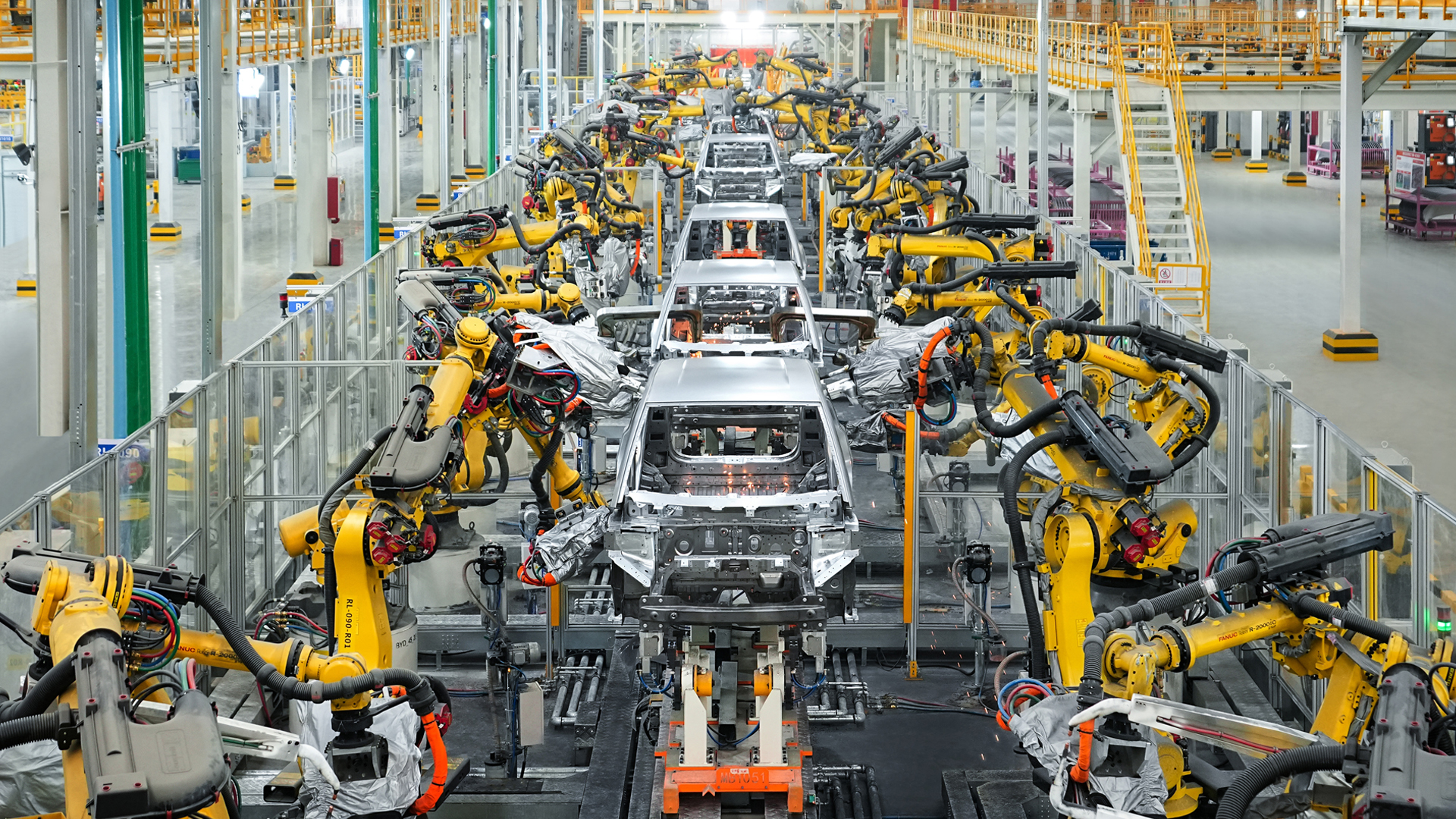The European Commission wants to impose new import duties on Chinese electric vehicles to help home-grown manufacturers compete against cheaper cars. But the EU is playing a dangerous game.
Following a months-long investigation into whether the Chinese electric vehicles sector has received unfair state subsidies, the European Commission announced this week that it will impose tariffs on imported cars.
This is the EU’s latest attempt to protect its industries against China’s market-busting manoeuvres. Chinese industries have already run European solar and battery firms out of town; policymakers do not want the same to happen to carmakers.
Under its proposed tariffs regime, Chinese EV firms that complied with the inquiry will be subject to a rate of 21%. Firms that did not will be hit with 38.1%. This will be on top of the existing 10% duty that non-EU car importers will pay.
The Commission’s investigation focused on three specific carmakers, who will receive their own tariff rates. BYD vehicles will be subject to 17.4%, Geely 20% and SAIC 38.1%.
China’s industry now has until next month to reply to the Commission’s findings but there is little chance of some sort of negotiated settlement in the meantime. What will be key now is how European governments react to the tariffs.
France and Spain’s governments, which want to protect carmakers based in those countries, championed the initiative, while Germany was opposed and put in a last-minute effort to scale back the level of tariffs that will be imposed.
That is because many of Germany’s large automakers have factories in China and will also be hit with these tariffs on the cars they import into Europe.
Carmakers do have the option to request an individual assessment from the Commission to determine a specific tariff rate. US carmaker Tesla, for example, has reportedly asked for that courtesy.
There is also the matter of China’s reaction. Beijing has already indicated that it is strongly opposed to the measures which it has denounced as protectionist. Tit-for-tat tariffs cannot be ruled out.
European exports like high-performance cars and specialist foodstuffs are on the Chinese government’s radar. What Beijing chooses to include on its hit list may well prove crucial to whether the EU approves the EV tariff list.
Germany will need to muster a lot of support before the end of the year to torpedo the plan. It can count on the support of Hungary and perhaps more Central and Eastern European countries. That may not be enough.
The EU is partly following in the footsteps of the United States, which earlier this year raised its existing 25% tariff on Chinese EVs to 100%. This move was purely performative on the part of the Biden administration, as the US market is not as exposed to Chinese imports.
If the Commission’s plan is implemented then it may convince other countries to take similar action. The United Kingdom, for example, is watching developments closely and a new Labour government might be tempted to follow the EU’s lead after July’s election.
Double-think
Looking at the wider picture and it is hard not to see a disconnect between this decision and the EU’s other policies.
Brussels wants to slash carbon dioxide emissions from the road transport sector and has bet big on electric vehicles as the main way to achieve that.
But the European People’s Party, which this weekend once again came out as the biggest political group after the EU elections, is manoeuvring to overturn or at least amend legislation that will effectively ban new sales of internal combustion engine cars by 2035.
The EPP and its allies claim that the measure is anti-industry, despite much of the automotive sector already planning to end ICE sales by that point anyway. It is no wonder that China has so easily moved in on the turf of well-established companies, when the politics driving policies suffer from such bizarre cognitive dissonance.
Whether the EPP gets its way will depend on whether Ursula von der Leyen is reappointed as Commission president and if she is, in which manner. If sticking with the ICE rules is a red line imposed by the socialists and liberals in return for backing her candidacy, then the status quo might be maintained.
If it is not, then the 2035 rules are rumoured to be one of the sacrificial lambs the EPP has targeted to remind the rest of the EU ecosystem that no big decisions will be made during the next five years without its say-so.
In any case, the EU on the one hand wants motorists to go all-electric but with the other hand is making that decision more expensive and complicated.
Want more updates and analysis of what is happening in the world of energy and climate? Interested in finding a job in the sector or more information about public tenders? Sign up to our Energy Rundown newsletter here!

